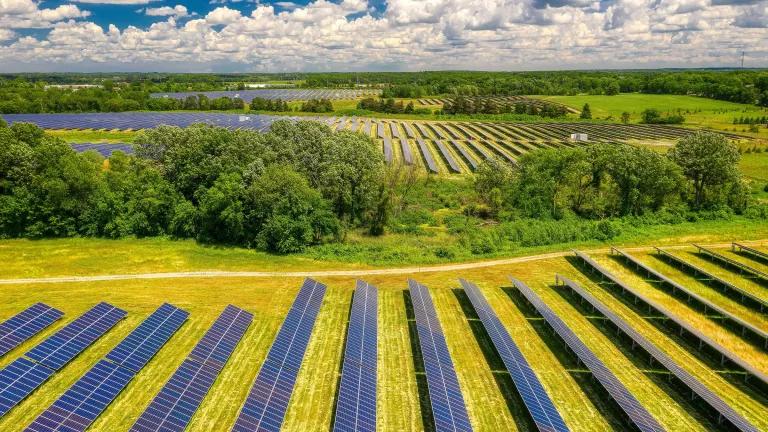Anyone in Richmond yesterday may have noticed (and felt) that the sweltering temperature of 92 degrees in May was a record high. Steadily rising temperatures associated with climate change will likely exacerbate Richmond's status as the asthma capital of the United States (Richmond was number one in the Asthma and Allergy Foundation of America's Asthma Capitals report in 2014, number 2 in 2015, and number 1 in 2011 and 2010).
Conditions that aggravate asthma, including higher pollen levels, are likely to worsen as our planet warms due to climate change, as detailed in a new NRDC report released today: Sneezing and Wheezing: How Climate Change Could Increase Ragweed Allergies, Air Pollution, and Asthma.
While that's bad news for a city already struggling with the nation's highest asthma rates, there is good news. We can stem these temperature and asthma rate increases and improve the health and well-being of Virginians by decreasing climate-changing pollution and the ozone that comes along with it. Doing so could save 120 lives a year or more, thanks to improved air quality, according to a recent study in the journal Nature Climate Change.
While we usually associate climate change with large-scale catastrophic events--think supercharged hurricanes, forest destroying derechos, California-crushing droughts--climate change also influences something as commonplace - and as debilitating to everyday quality of life -- as allergies and asthma.
But scientists have documented how rising temperatures have already increased the amounts of pollen in our air and lengthened the pollen season, too. And pollen allergies aren't just an unpleasant ding to our everyday quality of life: Americans miss more than an estimated 3.8 million work and school days due to seasonal allergies.
Likewise, increased temperatures create higher levels of ozone, which triggers (and even causes) asthma, emphysema, and chronic bronchitis. Together, these diseases cause more than 12,500 premature deaths a year, and these numbers will likely increase as our climate warms in the way we saw yesterday on an already-sweltering day in May.
Luckily, there's much we can do to stem these increases and improve our health and the economy as a result. As a start, the EPA's Clean Power Plan to cut carbon pollution from existing power plants will begin the gargantuan task of balancing global and Virginia temperatures while also decreasing ozone levels, all while being a boon to Virginia's nascent 21st centruy clean energy economy.
Knowing that ragweed allergies and asthma increase as the climate warms is the first step to doing something to stem these problems. Our new report shows that protecting the climate protects the health and well-being of Virginians as well.



